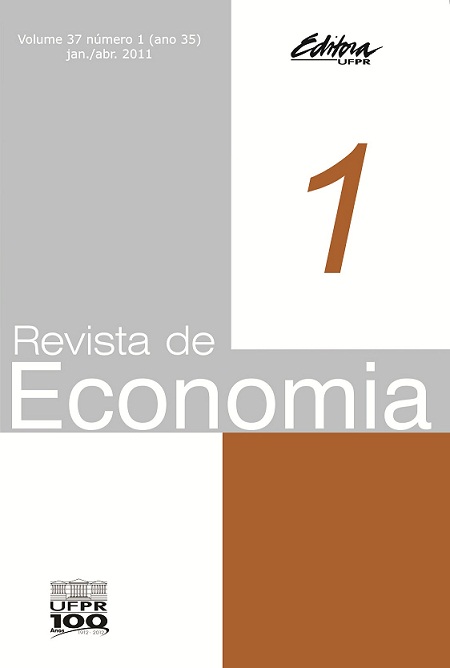The epistemic configuration of Hume’s economic thought
DOI:
https://doi.org/10.5380/re.v37i1.27226Keywords:
Foucault, Hume, economic thinking.Abstract
Eugene Rotwein wrote in his ‘Introduction’ to David Hume Writings on Economics that works on Hume’s economics have been primarily ‘internal’ studies. Beyond exploring Hume’s insights for understanding economic phenomena, they have investigated either the relations between his philosophical thought and his economic analysis or emphasised their psychological and historical elements. The perspective in this paper is ‘external’, dealing with Hume’s economic thought according to Michel Foucault’s approach to history. Foucault sees the ‘interiority’ of thought as a doubling of what is outside of thought. It is in this sense that Foucault investigates Hume’s context according to the concept of ‘episteme’, defining this as a set of relations that determines the ways of thinking. Foucault located Hume within the ‘classical episteme’ and I explore here his characterisation of that moment in order to understand the historical conditions of possibility of Hume’s economic thinking
Downloads
How to Cite
Issue
Section
License
By submitting a manuscript to this journal, authors agree with the following terms:
1. Authors retain copyright and grant the journal the right of first publication, with the work simultaneously licensed under the Creative Commons Attribution CC-BY License, which allows for the sharing of the paper while acknowledging authorship and initial publication in this journal.
2. Authors are granted the right to enter into additional and separate contracts aiming at the non-exclusive distribution of the version of the manuscript published in this journal (e.g., reproduction either in institutional repositories or as book chapters), with the acknowledgment of authorship and initial publication in this journal.



